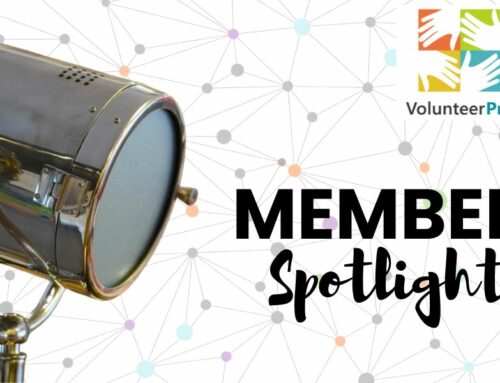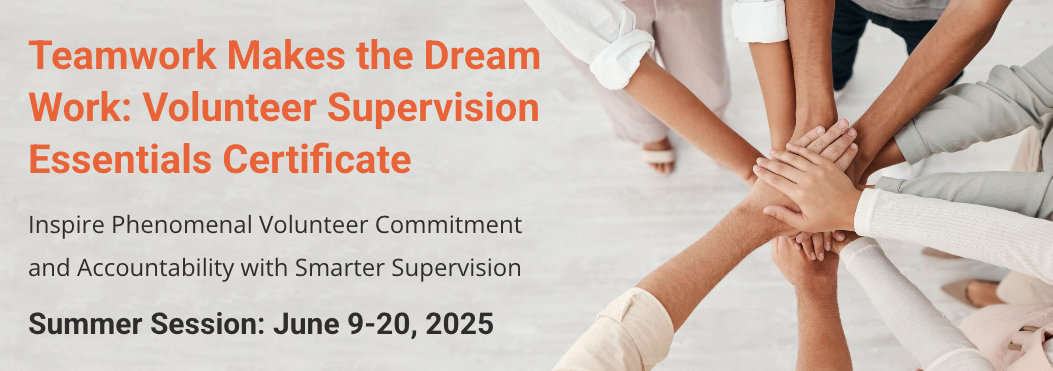
What I Learned From 10 Wonderful Years in Nonprofit Consulting
This month marks my tenth anniversary as a business owner in the field of nonprofit consulting and training. It’s hard to believe it’s been that long. A decade!
To be clear … When I started my business, I really had no clue what I was doing. I was lucky enough to have a friend and colleague offer me a substantial consulting project to help me get off the ground. And, I was off to the races.
Entering Into the Knowledge Economy
Business start ups are often painted as something glamorous, all gussied up with hipster savants, angel investors, fancy office suites, and a high tech invention to ship.
My story was far from that. My husband and I had just gotten married, and I moved to my new home at the foothills of the Great Smoky Mountains. He helped me get set up with a couple of folding tables from his lab, lent me an old laser printer, and bought me a small, white MacBook (remember those?).
I ditched my flip phone for smartphone, and I got to work. It was surreal.
After working for twenty years in all kinds of nonprofits, I was used to developing programs, building volunteer teams, collaborating with partners, seeing the concrete results of my actions. People paid me to lead programs that worked.
As a nonprofit consultant and coach, I was offering my experience. Simply my brain communicating through my modest computer and an internet connection.
Welcome to the knowledge economy.
Then Comes VolunteerPro: Focusing on Volunteerism
As the nonprofit consulting business grew, I focused more on more on volunteerism as my core area of service. There was such a need (and continues to be) for a better approach to engaging the community. Volunteering rates had been flat for years, despite wild growth in charities.
The sector needed to modernize and fast.
This wasn’t my grandmother’s volunteering anymore. No one wanted to contribute the same days every week for the same organization for years. Times were rapidly changing.
So, after six years of consulting and public speaking, I started VolunteerPro. It was time to scale my expertise so more people could benefit. And, technology was finally keeping pace with the needs of online course providers.
I assembled a small team and we set out to launch VolunteerPro. And, yes, just like on Silicon Valley, we worked from my dining room table, across the hall from my small office. Now, my office had a real desk, shelves chock full of books, and file cabinets.
For the first six months, we taught ourselves everything we needed to know about digital communications, web design, webinar production, you name it.
It took me about a year to actually recognize that I was a digital entrepreneur. I thought I was just running a training business. But, it was more than that.
And, it keeps evolving.
10 Lessons Learned from a Decade of Nonprofit Consulting
As I kick off a second decade of business, I’ve been thinking about what I’ve learned. Whether you work for a charity or a for-profit business, these may apply to your situation.
Here it is in a nutshell.
1. All businesses Start Small
Whether you’re launching a business, starting up a nonprofit or developing a program, everything starts small, with a kernel of an idea.
While you may have big dreams for where you’re headed, you won’t get there immediately. So, don’t compare yourself to others who’ve been around awhile. You’ll get there.
2. Start With Your Passion, But Lead With Your Expertise
A lot of people talk about starting a business to “fuel their passion.” While we all want to be excited about what we do, passion doesn’t pay the bills.
You need to continually hone your expertise. People hire you to know more than they do. Otherwise, why should they invest?
3. Plan to Work in Your Business and on Your Business
As Michael Gerber relates so eloquently in the The E-Myth Revisited: Why Most Small Businesses Don’t Work and What to Do About It, it’s seductive to focus on the things you like to do (your passions, the reason you started your business) and neglect the things that make the business run (sales, marketing, finances, outcomes reports, partnership development, etc.). But, you have to do both to survive.
I’m still learning this lesson. In fact, I just signed up for a small business bookkeeping course! Yes, I’d rather be consulting nonprofits or make training slide decks, but it was beyond time for me to take this on!
4. Learn to Regulate Your Emotions
When I was a young leader, I wore my heart on my sleeve. I thought it made me more transparent to me team. That’s only partly true. Letting your emotions get the best of you doesn’t help anyone. It causes anxiety on your team, and when you can’t moderate your reactions, it does a number on your own sense of well-being.
Sure, everyone needs to let off steam from time to time, but find a way to take things in perspective — is what’s happening really worth the drama? Maybe so, maybe not. I find that regular mindfulness-based meditation helps me keep a more even keel.
5. Bootstrap as Much as Possible
Others may disagree, but I’m a conservative investor. I don’t buy things for my business until they are needed. I prefer to put in sweat equity when I can, and I don’t buy things if they are going to put me on uneven footing. As a result, the business was only in debt one year out of ten, and it was planned. When I built VolunteerPro, I knew it would take a year to recoup, and I didn’t fret about it.
6. Exception: Invest When You Want to Learn Fast or Scale Fast
There are times when you may want to invest in your growth to succeed more quickly.
Something that may take you forever to research and test out could be taught to you in a fraction of the time by someone who knows the ropes. Or, you may want to build clientele faster than you can with your current practices, and paid advertising will help you do it. In these cases, paying for help makes sense. This is exactly why I started nonprofit consulting in the first place, so help people like you succeed faster.
7. You Can’t Grow Without Being Uncomfortable
It’s wishful thinking to believe you can breakthrough a barrier or create a fantastic product, service, or program without some struggle. When it comes to important work, there are no magic wands or secret recipes that waive the hard work.
Believe it or not, most successful leaders experience self-doubt at some point in the journey. The call it “imposter syndrome.” People ask themselves: “Who am I to do this?” I answer: “Who are you not to do this? You don’t need permission from anyone to make an impact, so stop waiting for it.”
8. Fear is the Most Wasteful of All Rulers
As a leader, no one should ever let fear rule their decision-making. Unexamined fears result in limiting mindsets that we believe to be true about our capabilities. This can stop us from taking action to move through our fears and toward success.
Think of all of the things you once had unfounded fears around — they now feel easy don’t they? Instead of being ruled by fear, note when you are afraid. Say it out loud. For example, “I am afraid of trying to learn bookkeeping because I’m not good at numbers.”
Then, replace it with an enabling statement, “I can learn bookkeeping by getting some help and applying myself, just like millions of other people have done. This is important to the growth of my business, and later it will feel like a piece of cake.”
9. You Can’t Have a Successful Business (or Program) Without Selling
Sales gets a bad rap, but it’s nothing more than persuasion and influence. We are “selling” all the time — getting your kids to go to bed on time, getting your hubby to see that new romance movie, getting your friends to come to lunch at your favorite restaurant. Even nonprofits are selling — to volunteers, donors, funders, etc.
Great sales people aren’t born, they learn how to influence and do it with integrity. Sales is about helping people get connected with a product, service, or experience to help them overcome a personal or professional challenge or become a better person. What could be more noble than that? (See what I did there with the mindset thing from number 8?)
10. Learn from Failure and Success
I wish I could say that once you get over whatever hump your striving for, you’ll reach some kind of nirvana where things get easier. They don’t. As an entrepreneurial type — either in your own business or someone else’s — the challenges won’t stop. They’ll just change as you grow.
You will succeed and you will fail, over and over again. What’s important is that you learn from both enterprises…and that you find your joy in the struggle. This is where adjusting your mindset comes in.
Just Keep Swimming
Regardless of if your interested in nonprofit consulting or becoming the best volunteer manager you can be, I hope you’ve found at least one inspirational nugget that can propel you forward.
Just remember, the only difference between those who succeed and those who fail is perseverance. Those who succeed relentlessly seek the best path, they keep grounded for those they serve, and they keep on going.
As I begin a new decade of business through nonprofit consulting and volunteer management training, I am grateful to our customers. You have helped us realize our dreams of a better world for volunteers and volunteer organizations.
We could not have done it without you.





